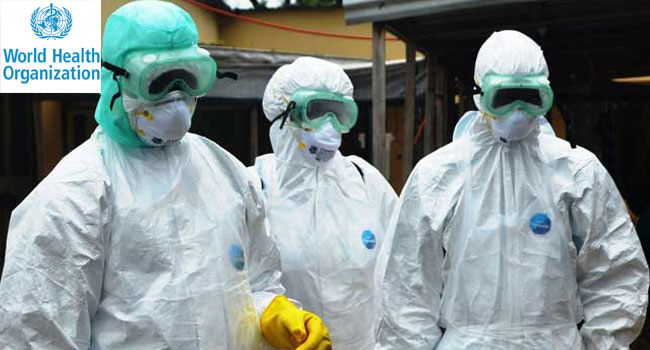HEALTH
Nigeria on High Alert: NCDC Issues Public Advisory on DR Congo Ebola Outbreak

The Nigeria Centre for Disease Control and Prevention (NCDC) has issued a nationwide advisory in response to a newly confirmed Ebola outbreak in the Democratic Republic of Congo (DRC). The advisory comes after the DRC reported 28 suspected cases and 15 deaths, including four health workers, as of September 4, 2025.
NCDC Confirms No Cases in Nigeria, Details Response
While stressing that there are currently no confirmed cases of Ebola Virus Disease (EVD) in Nigeria, the NCDC has placed the country on high alert. The agency has significantly heightened surveillance measures at all points of entry, healthcare facilities, and within communities to prevent any potential spread of the disease.
The outbreak, which is affecting the Bulape and Mweka health zones in DRC’s Kasai Province, has been confirmed to be caused by the Ebola Zaire virus. The mortality rate for this strain is estimated at 57%. The NCDC noted that the DRC has already activated its Public Health Emergency Operations Centre with support from the World Health Organization (WHO) to manage the situation.
Understanding the Ebola Virus: What You Need to Know
Ebola Virus Disease is a severe, often deadly illness with a high fatality rate. It is transmitted through direct contact with infected animals or the bodily fluids of infected humans. Those at highest risk of infection include healthcare workers and family members of the infected or deceased.
Recognizing Symptoms
The incubation period for the virus can range from 2 to 21 days. Initial symptoms are often a sudden onset of:
- Fever
- Intense weakness and muscle pain
- Headache and sore throat
These are followed by more severe symptoms such as vomiting, diarrhea, and in fatal cases, uncontrolled bleeding and organ failure.
Public Health Advisory & Preventive Measures
The NCDC advises all Nigerians to adhere to the following preventive measures to protect themselves and their communities:
- Practice good hand hygiene by regularly washing hands with soap and water or using hand sanitizer.
- Avoid all physical contact with individuals who show symptoms of an unknown illness.
- Reduce the risk of wildlife-to-human transmission by avoiding contact with infected fruit bats or monkeys and thoroughly cooking all meat before consumption.
- Avoid direct contact with blood, saliva, vomit, and other bodily fluids of suspected or confirmed EVD cases.
The NCDC also reminds Nigerians that an approved vaccine, Ervebo, is available and effective against the Ebola Zaire strain. The agency will continue to monitor the global situation closely and provide updates as they become available.
